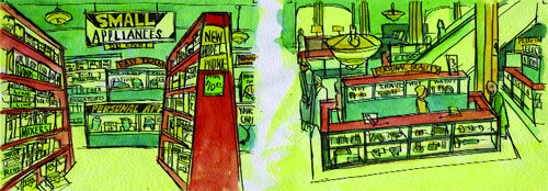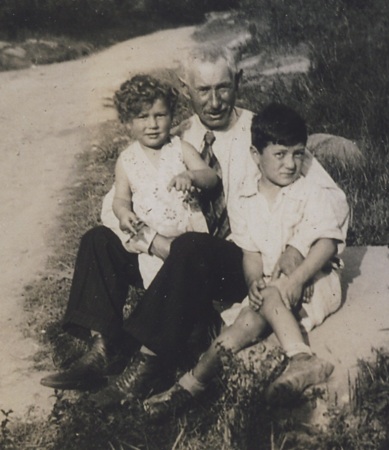This evening I went to see Ben Katchor’s The SlugBearers of Kayrol Island or The Friends of Dr. Rushower, a theatre piece in which live actors are completely integrated with animation projected onto huge movable flat panels that constitute the walls of the stage.

I’ve seen things before that try to do things like that, but what struck me about this production is that finally somebody got it right. From the opening image, in which the audience sees a huge hand drawn animation of a telephone, and then notices a real-life telephone. As the actress playing a main character walks onto the stage to pick up the real phone, we see a cartoon hand reach for the animated phone.
And suddenly, in one moment, we realize that the animated phone is actually about the young woman’s state of mind, her sense of anticipation at the mystery and possibility of a fateful phone call from a stranger.
In that one simple gesture at the start of the play, it is established to the audience that the animated walls will be showing a kind of internal reflection of the thoughts of the characters, and always in a subtle and somewhat indirect way.
This approach leads to a kind of new medium, where live action is subliminally underscored and commented upon by animation. There are similarities to the work that Bob Sabiston did for the Richard Linklater film Waking Life, but with some crucial differences.
One of those crucial differences is that this is a live performance. There is always the possiblity of some level of improvisation, of the unexpected performative moment, and so we get the best of both worlds – the abstraction and compression of animation, together with the immediacy and excitement of live acting.
Seeing things like this makes me very happy.


